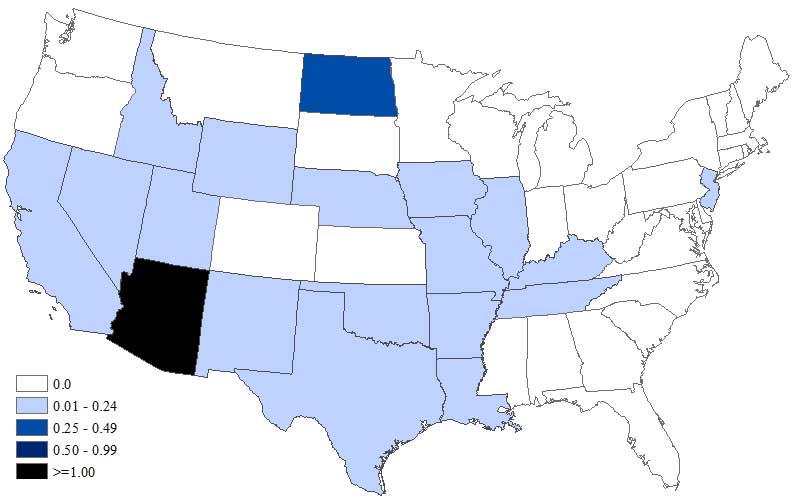West Nile claims first state victim this year
Web-posted Sep 17, 2005
By KANIQUA S. DANIEL
Of The Oakland Press
A Wayne County resident died Thursday after testing positive for the West Nile virus last month at Royal Oak Beaumont Hospital.
The state's first fatal West Nile case this year, Irving Shoebridge, 74, of Melvindale was hospitalized at Beaumont Hospital when diagnosed, said his wife, Mary Shoebridge. He remained there Aug. 5 through Sept. 2, then was transferred to Wyandotte Hospital in Wayne County, where he died.
West Nile is a mosquito-borne virus. Specialists warn of standing water, which attracts the Culex mosquitoes that carry the virus.
"You never think it could happen to you or someone you love, but it happened," Mary Shoebridge said. "People need to be more aware of their surroundings. I think he got it right in our back yard."
After suffering a high fever and flulike symptoms, Shoebridge said her husband first checked into Oakwood Hospital in Dearborn, but hospital staff members were unable to determine the cause of his illness.
"He became sick July 29," said Shoebridge, 65. "It continued for about a week, then we went to Oakwood Hospital ... On Aug. 5, he checked into Beaumont. They ran every test they could, and couldn't find anything at first. Then they did a spinal tap on Aug. 10 and sent it to the state to be tested."
Shoebridge said the results came back in two weeks verifying that her husband had contracted the West Nile virus. According to the Michigan Department of Community Health, there are six confirmed cases, total, in the state this year, with three in Wayne County. The other cases are in Grand Traverse and Kent counties.
A 57-year-old Pontiac man was diagnosed with the virus Sept. 2 - the first Oakland County resident with West Nile this year - but was expected to recover, said George Miller, manager of the Oakland County Health Division.
The county had one confirmed case and one probable case in 2004. During summer 2002, West Nile killed 51 people in Michigan, and 20 in Oakland County.
The Centers for Disease Control and Prevention Web site, www.cdc.gov, reports people age 50 and older have the highest risk of death from the disease. Because there is no cure, the site states that in severe cases, intensive supportive therapy is suggested involving hospitalization, intravenous fl uids, airway management, respiratory support (ventilator), prevention of secondary infections and good nursing care.
Shoebridge said her husband was in intensive care for most of his stay at Beaumont because he could not breathe on his own and was nearly paralyzed from the virus.
Prior to being diagnosed with West Nile, Irving Shoebridge had a condition called myasthenia gravis, a chronic autoimmune neuromuscular disease characterized by varying degrees of muscle weakness.
Shoebridge, however, said it didn't affect her husband's health as he was able to walk two miles each day and golf. Through tears, she said he was in so much pain from the virus that he said he wanted to die.
News Clips and Information on West Nile Virus Survivors. Videos and links to News Articles on West Nile Virus Families, West Nile Deaths, West Nile Virus Prevention and West Nile Virus Symptoms
Saturday, September 17, 2005
Subscribe to:
Post Comments (Atom)
CDC West Nile Virus Info
Skip directly to page options Skip directly to A-Z link West Nile Virus Neuroinvasive Disease Incidence by State 2019 West Nil...

-
Teenage girl in Menifee dies after four-year battle with West Nile illness Download story podcast 10:00 PM PST on Wednesday, December 10...
-
Skip directly to page options Skip directly to A-Z link West Nile Virus Neuroinvasive Disease Incidence by State 2019 West Nil...
-
Tosa man battling West Nile dies Steiner was principal of Wauwatosa West High School By KAWANZA NEWSON knewson@journalsentinel.com Posted: N...

No comments:
Post a Comment